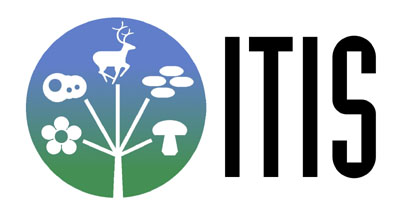Data set with ~20,000 microorganisms
microorganisms.RdA data set containing the complete microbial taxonomy of the kingdoms Bacteria, Fungi and Protozoa from ITIS. MO codes can be looked up using as.mo.
microorganisms
Format
A data.frame with 18,833 observations and 15 variables:
moID of microorganism
tsnTaxonomic Serial Number (TSN), as defined by ITIS
genusTaxonomic genus of the microorganism as found in ITIS, see Source
speciesTaxonomic species of the microorganism as found in ITIS, see Source
subspeciesTaxonomic subspecies of the microorganism as found in ITIS, see Source
fullnameFull name, like
"Echerichia coli"familyTaxonomic family of the microorganism as found in ITIS, see Source
orderTaxonomic order of the microorganism as found in ITIS, see Source
classTaxonomic class of the microorganism as found in ITIS, see Source
phylumTaxonomic phylum of the microorganism as found in ITIS, see Source
subkingdomTaxonomic subkingdom of the microorganism as found in ITIS, see Source
kingdomTaxonomic kingdom of the microorganism as found in ITIS, see Source
gramstainGram of microorganism, like
"Gram negative"prevalenceAn integer based on estimated prevalence of the microorganism in humans. Used internally by
as.mo, otherwise quite meaningless. It has a value of 25 for manually added items and a value of 1000 for all unprevalent microorganisms whose genus was somewhere in the top 250 (with another species).refAuthor(s) and year of concerning publication as found in ITIS, see Source
Source
Integrated Taxonomic Information System (ITIS) public online database, https://www.itis.gov.
ITIS

This package contains the complete microbial taxonomic data (with all nine taxonomic ranks - from kingdom to subspecies) from the publicly available Integrated Taxonomic Information System (ITIS, https://www.itis.gov).
All ~20,000 (sub)species from the taxonomic kingdoms Bacteria, Fungi and Protozoa are included in this package, as well as all their ~2,500 previously accepted names known to ITIS. Furthermore, the responsible authors and year of publication are available. This allows users to use authoritative taxonomic information for their data analysis on any microorganism, not only human pathogens. It also helps to quickly determine the Gram stain of bacteria, since ITIS honours the taxonomic branching order of bacterial phyla according to Cavalier-Smith (2002), which defines that all bacteria are classified into either subkingdom Negibacteria or subkingdom Posibacteria.
ITIS is a partnership of U.S., Canadian, and Mexican agencies and taxonomic specialists [3].
Read more on our website!

On our website https://msberends.gitlab.io/AMR you can find a omprehensive tutorial about how to conduct AMR analysis and find the complete documentation of all functions, which reads a lot easier than in R.